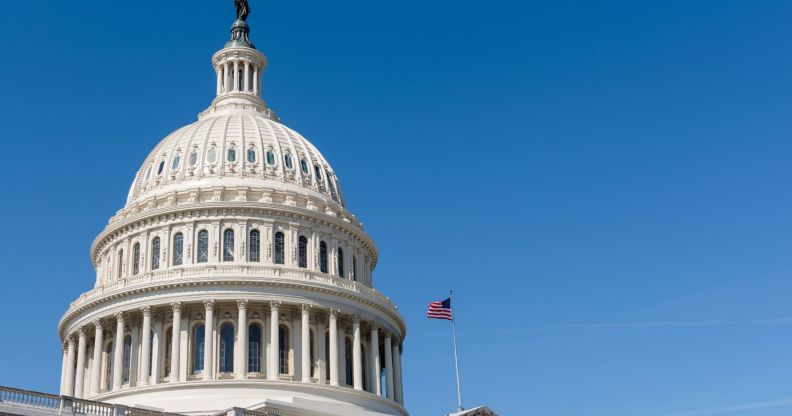
The Dignity for Detained Immigrants Act aims to “restore humanity and dignity to the immigration system”. (Getty)
A majority of the anti-LGBTQ+ bills in 2022 fell flat despite the record number proposed last year.
Statistics reported by the Human Rights Campaign on Thursday (26 January) found that less than 1 in 10 anti-LGBTQ+ bills proposed last year became law.
At least 315 laws, that discriminated against LGBTQ+ people in some capacity, were found by the nonprofit organisation, with 29 passing.
The shocking number came as part of its 2022 State Equality Index – an annual review into the state of LGBTQ+ equality across the US.
It wrote that several of the proposed bills deployed “vintage discriminatory tropes” that have plagued LGBTQ+ groups for years.
Many others attempted to use the wave of anti-trans hysteria to push attempts at banning gender-affirming care or further stifling the rights of trans youth.
A shocking 149 US bills were found to have targeted the transgender community in 2022, many of which were directed at under-18s.
Comparatively, 24 pro-equality bills were passed into law in 2022 – from progressive legislation making it easier for trans people to change their name, to the Respect for Marriage Act.

In a statement, the Human Rights Campaign senior vice president of political affairs JoDee Winterhof said: “The 2022 State Equality Index outlines how states across the country fought back against yet another record year of anti-LGBTQ+ legislative attacks.
“These bills are terrible public policy, and we are also deeply cognisant of how every harmful anti-LGBTQ+ bill that is signed into law has a devastating impact on the lives and well-being of LGBTQ+ people.”
One of the more significant trends in 2022 was the resurgence of anti-LGBTQ+ bills targeting curriculum in schools, dubbed the “Don’t Say Gay” bills.
The first of its kind was passed and signed by Florida governor Ron DeSantis in the latter half of March.
The blow to LGBTQ+ rights in the region – which saw LGBTQ+ topics completely banned from classroom discussion – prompted several copycat laws to pop up in states like Pennsylvania and Indiana.
During that time, the use of the homophobic slur “groomer” exploded on social media platforms, hitting 9,219 tweets the day after the bill was signed – about once every nine seconds.
Fears that 2023 could be even worse for LGBTQ+ people have sparked up following a massive surge in anti-LGBTQ+ bills in January alone.
More than 100 anti-LGBTQ+ bills have been proposed in 2023 already, from “Don’t Say Gay” copycats to bills attempting to define drag performances as “adult entertainment.”
Activist Erin Reed – who has been detailing each anti-trans bill to have been proposed so far – said the wave of bills has “terrorised the transgender and drag communities,” while blaming the wave of anti-trans panic sparking up in the US.
Additionally, Equality Federation Institute Fran Hutchins said: “It’s more important than ever to focus our attention on protecting LGBTQ+ people in the states, where the work is hard, but the impact is great.”
How did this story make you feel?
